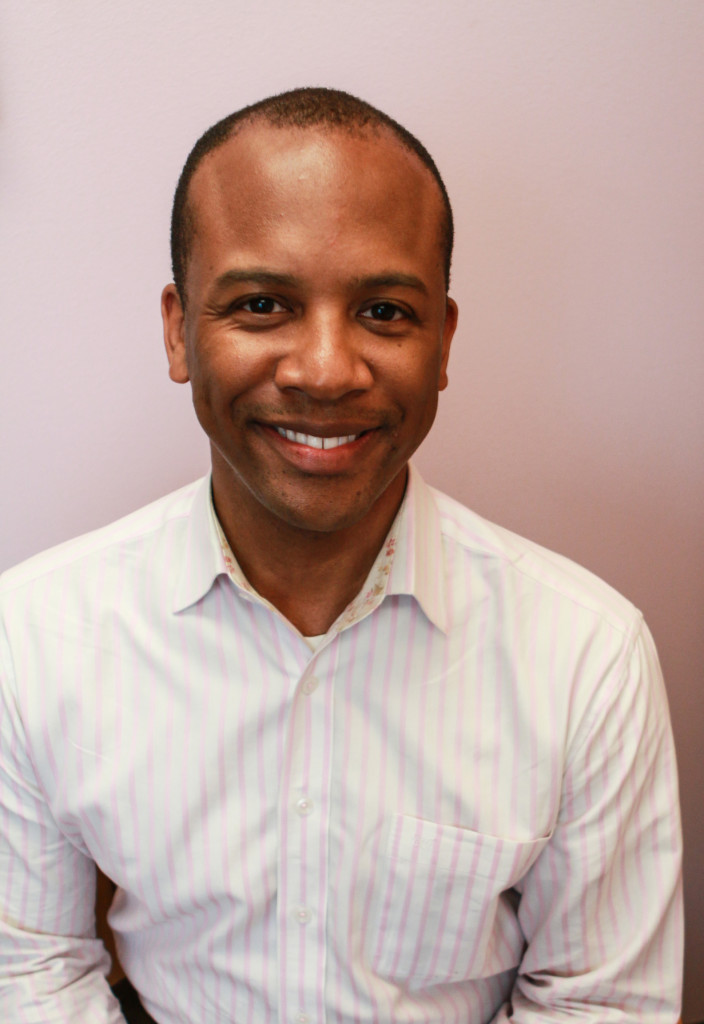After seven years at Seattle University, violinist Quinton Morris, the Directory of Chamber and Instrumental Music, has received tenure.
Morris is the only tenured professor in the department, and only the second African American violinist to receive tenure in United States history.
Morris is an enthusiastic man, with keen eyes and a dignified air about him that compliments his friendly personality. He started playing the violin at a public school in Chicago, Ill.—and while he focuses most of his musical ability on the violin, Morris also plays a bit of piano and dabbles on the viola.

Quentin Morris is the first music professor to get tenure at Seattle University in more than 25 years. He is only the second black violinist in America ever to do so.
Sitting in his cozy office in the basement of Hunthausen Hall, Morris discussed the development of the string department over the past seven years.
“I’ve tried to provide a sense of stability in the program so that the students don’t feel a lack of community within the department,” he said. “Having that community is really important, so I try to have good relationships within, and between faculty members and students.”
With Morris’ help, the string department has gained a momentum shift in the past seven years, away from what was a dilapidated program in the preceding 25 years. “The whole program used to only last two quarters, now it’s six,” Morris said. “I had to write a degree program in about five weeks and now that folks are seeing the change, and seeing that the change is positive, I think a lot of people are taking notice. We’ve set a precedent and I think we’re at a point where we can start to have more.”
Dr. Morris hopes to not only improve facilities and services provided by Seattle U, but also to better support his adjunct and contingent faculty, who make up the overwhelming majority of his staff.
“[The program] has definitely grown in the four years that I have been here. It’s a very personal program, which is nice because I get a lot of personal attention from all of my professors. You get to be the center of their attention, which is something you wouldn’t really get at a bigger school. Here, everyone cares about everyone, and it’s really a dream,” said senior Antonio Dowling.
Under Morris’ leadership, fewer students fall through the cracks.
“I don’t treat anybody like a part-time person,” said Morris. “I treat everyone as a colleague.”
Morris is only the second African-American violinist in the United States to receive tenure. “For most, if not all of my contemporaries, playing professionally always meant playing in an orchestra. We were not groomed to be soloists or chamber musicians, and so teaching at the university level was never a possibility,” Morris said. “I hadn’t really seen any African–American soloists at the academic level. The history is certainly suggestive of our country’s past. So for me, receiving the tenure was a sublime experience—not just for myself, but I think for history as well.”
While there has been momentum and Morris’ tenure gives the string department some well-deserved attention, not everything is perfect.
”We certainly have a lot of talent here, some real potential stars. Where it falters is in the way the administration treats the program. We have a real lack of resources,” said professor
Amber Archibald.
For example, professors and students don’t have a music library, or a budget to purchase music that is needed to service students. Until last year when they got into interlibrary loaning, there was “no real way to get music to students,” according to Archibald. Further, the program is wanting for practice and performance space. “Between all the students, it’s very hard to find space to both practice and perform,” she said.
The machine isn’t broken anymore, but it’s missing some key parts—however, resources and services could continue to improve as the
program matures.








